Data Analytics Services
Use data analytics to uncover business opportunities before your competitors do
Modernize your data science processes
With our help, you will gain a competitive advantage, find new opportunities, and discover hidden risks that might otherwise go unnoticed.


The benefits of outsourcing data science projects




and experienced team

to market changes


between teams
Their teams have different procedures, objectives, and standards for data processing.

in data science
Your team has no experience implementing solutions in analytics and data engineering.

failures

consistency
When your data is not structured and organized enough to analyze it.

Poor data quality

visualization

Data privacy
The stored data is not secure or does not comply with privacy laws and regulations

Data duplication
You have excessive copies of data managed by different teams

of data
Too much data, especially unstructured, results in complex data sets to analyze for decision making
Do you know which analytics you need?
Descriptive Analytics
Diagnostic Analytics
Predictive Analytics
Prescriptive Analytics
Based on your data, do you want to know what has happened?
Based on your data, do you want to know what has happened?
Based on your data, do you want to know what has happened?
Based on your data, do you want to know what has happened?
Description
Uses historical data to describe past events and provide a clear view of what has happened. Focuses on collecting, organizing, and visualizing data.
Analyzes historical and current data to understand the causes of past events. Identifies patterns and relationships in the data to answer questions.
Analyzes historical data and trends to foresee what might happen in the future.
Combines descriptive, diagnostic, and predictive analytics techniques to suggest optimal actions or strategies. Focuses on providing practical recommendations based on data.
Advantages
Easy to implement and use, even with little technical experience.
Provides a basic and clear understanding of the data, which is useful for daily decision-making.
Helps identify causes of problems and areas for improvement, facilitating more informed and accurate decisions.
Allows for a better understanding of process or customer behavior and performance.
Allows anticipation of future trends and behaviors, helping to prepare proactive strategies and responses.
Improves planning and decision-making based on demand forecasts and other key factors.
Optimizes decision-making by offering specific solutions based on data and predictive models.
Helps minimize risks, maximize opportunities, and improve efficiency in various strategic areas.
Scope
Offers a limited and superficial view of the data, as it does not explore underlying causes or project future results.
Relies on historical and current data, so it may not be completely accurate in all contexts. It does not predict future events or recommend specific actions.
The accuracy of predictions depends on the quality and quantity of available data. It does not guarantee exact future results, as it is based on probabilities.
Requires a large amount of data and sophisticated analytical techniques. It may not consider all possible variables, and its implementation can be complex and costly.
Our Services
We provide comprehensive solutions by studying variations and trends in a series of metrics and indicators to obtain a quantitative description of what has happened or how things are being done in your business.
We study and relate all available data to find behavioral patterns that explain the results obtained in the descriptive analytics.
We analyze current and historical facts to make predictions about future or unknown events related to your key business indicators.
We recommend actions and foresee the impact they will have in order to facilitate and automate decision making, identifying the best decision among all the possible ones.
Through ETL processes (extraction, transformation and loading of data) we integrate all your databases, analyze them and make the information available for your use.
We tell stories from your data. We represent your data, findings and information in dashboards through technological visualization tools.
We offer a variety of courses to train your team in the development of data analytics solutions, strengthening their skills and knowledge in this fundamental area.








